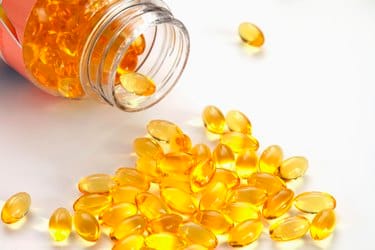Maintaining healthy skin requires more than just topical treatments; the right supplements and vitamins play a significant role in supporting skin health from the inside out. Essential vitamins like A, C, D, and E are known to boost skin repair, enhance elasticity, and provide antioxidant protection against damage from environmental stressors. Vitamin A, for example, promotes cell turnover and collagen production, while vitamin C supports skin brightness and strengthens the barrier against pollutants. Adding these nutrients to your daily routine can help in achieving a radiant complexion.
Best Supplements for Healthy Skin such as omega-3 fatty acids and collagen are also key players in skin health. Omega-3s, commonly found in fish oil supplements, help maintain moisture and elasticity by reducing inflammation, which can lead to fewer breakouts and less redness. Meanwhile, collagen supplements support the skin’s structural integrity, combating signs of aging like fine lines and sagging. Combining these supplements with a balanced diet enhances their benefits, as nutrient-rich foods further promote healthy skin.

When choosing supplements, quality matters, so opt for trusted brands that offer high bioavailability for better absorption. This approach ensures that your skin receives the best possible support for lasting health and natural beauty.
What is Vitamins And Supplements
Vitamins and supplements are essential nutrients that support various bodily functions and contribute to overall health. Vitamins are organic compounds that the body requires in small amounts to function effectively, playing crucial roles in processes such as metabolism, immune function, and cell repair. There are 13 essential vitamins, each serving distinct functions: for example, vitamin C aids in the healing of wounds and boosts the immune system, while vitamin D is vital for bone health. Since these vitamins are not produced in sufficient quantities by the body, they must be obtained through a balanced diet or supplements.

Supplements, on the other hand, are products that provide additional nutrients, including vitamins, minerals, herbs, amino acids, and other substances, to help fill dietary gaps or enhance health. They come in various forms, such as tablets, capsules, powders, or liquids, and can be beneficial for individuals with specific health conditions, dietary restrictions, or those who may not be getting enough nutrients from their diet. While supplements can play a supportive role in health, they should not replace a balanced diet, and it’s essential to choose high-quality products and consult with a healthcare professional before starting any new supplement regimen.
How Can We Chose Best Supplements According Skin Condition
When it comes to skincare, the products we apply topically are essential, but what we consume plays an equally significant role in the health of our skin. Supplements can help address various skin conditions, but choosing the right ones can be overwhelming. Here’s a guide to help you select the best supplements based on your specific skin concerns.
1. Identify Your Skin Condition
Before you begin looking for supplements, it’s crucial to identify your specific skin condition. Common skin issues include:
- Acne: Often caused by hormonal imbalances, excess oil production, and inflammation.
- Dry Skin: May result from environmental factors, genetics, or underlying health issues.
- Eczema: A chronic condition characterized by inflamed, itchy skin.
- Psoriasis: An autoimmune condition that leads to rapid skin cell production, causing scaling and redness.
- Aging Skin: Signs include wrinkles, fine lines, and loss of elasticity.
- Granuloma Annulare: Granuloma Annulare is a chronic skin condition characterized by raised, reddish or skin-colored bumps that form a ring pattern, typically on the hands and feet.
2. Key Supplements for Various Skin Conditions
- For Acne:
- Zinc: Helps reduce inflammation and regulate oil production.
- Omega-3 Fatty Acids: Found in fish oil, these can help reduce inflammation and promote skin healing.
- Vitamin A: Essential for skin cell turnover; consider a supplement or food sources like carrots and sweet potatoes.
- For Dry Skin:
- Omega-3 Fatty Acids: Hydrate and improve skin barrier function.
- Hyaluronic Acid: Although often found in topical products, oral supplements can help retain moisture.
- Vitamin E: An antioxidant that helps protect skin and improve moisture levels.
- For Eczema:
- Probiotics: May help balance gut bacteria and reduce inflammation associated with eczema.
- Evening Primrose Oil: Contains gamma-linolenic acid (GLA), which may reduce inflammation and improve skin hydration.
- Vitamin D: Important for skin health and immune function; a deficiency can exacerbate eczema.
- For Psoriasis:
- Fish Oil: Anti-inflammatory properties can help reduce symptoms.
- Vitamin D: Supports skin health and may alleviate psoriasis symptoms.
- Turmeric: Contains curcumin, which has anti-inflammatory properties beneficial for managing psoriasis.
- For Aging Skin:
- Collagen Peptides: Supplementing collagen can improve skin elasticity and reduce the appearance of wrinkles.
- Vitamin C: An antioxidant that helps with collagen production and protects against sun damage.
- Coenzyme Q10 (CoQ10): Helps improve skin tone and reduce the appearance of wrinkles.
- For Granuloma Annulare:
- Vitamin D: Best Treatment for Granuloma Annulare, as it supports immune system function
4. Quality Matters
When selecting supplements, opt for high-quality products from reputable brands. Look for:
- Third-Party Testing: Ensures the product’s purity and potency.
- Transparency: Brands that disclose their sourcing and manufacturing processes are typically more trustworthy.
- Labeling: Check for essential certifications, such as non-GMO, gluten-free, and allergen-free if necessary.
5. Lifestyle Factors
In addition to supplements, consider lifestyle changes that can positively impact your skin:
- Diet: Incorporate a balanced diet rich in fruits, vegetables, lean proteins, and healthy fats.
- Hydration: Drink plenty of water to keep your skin hydrated from within.
- Sun Protection: Always use sunscreen to protect against UV damage.

Which Foods Are A Good Choice For Healthy Skin
Maintaining healthy skin is not just about using the right skincare products; it also involves nourishing your body with the right foods. Here’s a list of foods that promote healthy skin:
1. Fatty Fish
Rich in omega-3 fatty acids, fatty fish like salmon, mackerel, and sardines help keep the skin moisturized and supple. Omega-3s also reduce inflammation, which can help manage conditions like acne and psoriasis.
2. Avocados
Avocados are high in healthy fats and vitamins E and C, which are essential for skin health. Vitamin E is a powerful antioxidant that protects the skin from oxidative stress, while vitamin C is crucial for collagen production.
3. Nuts and Seeds
Almonds, walnuts, and sunflower seeds are packed with nutrients that support skin health. They provide essential fatty acids, vitamin E, and antioxidants, which help keep the skin hydrated and protect it from damage.
4. Sweet Potatoes
Sweet potatoes are an excellent source of beta-carotene, which the body converts to vitamin A. This vitamin helps maintain skin health by promoting cell production and repair, leading to a more youthful appearance.
5. Berries
Berries like strawberries, blueberries, and raspberries are rich in antioxidants, particularly vitamin C. Antioxidants help combat free radicals, reducing the signs of aging and promoting an even skin tone.
6. Leafy Greens
Vegetables like spinach, kale, and Swiss chard are loaded with vitamins, minerals, and antioxidants. They provide vitamin A, vitamin C, and a variety of phytonutrients that protect the skin and enhance its appearance.
7. Tomatoes
Tomatoes are rich in lycopene, an antioxidant that can protect the skin from sun damage and improve skin texture. They are also a great source of vitamin C, further supporting skin health.
8. Citrus Fruits
Fruits like oranges, lemons, and grapefruits are high in vitamin C, which is essential for collagen synthesis. Collagen is vital for skin elasticity and firmness, helping to reduce wrinkles and sagging.
9. Whole Grains
Whole grains like brown rice, quinoa, and oats provide essential nutrients and fiber. They help maintain stable blood sugar levels, which can prevent breakouts and keep skin looking fresh.
10. Green Tea
Rich in antioxidants, particularly catechins, green tea can help reduce inflammation and protect the skin from damage. Drinking green tea may also improve skin hydration and elasticity.
Conclusion
Choosing the right supplements for your skin condition involves understanding your specific needs and consulting with healthcare professionals. By combining supplements with a healthy lifestyle and skincare routine, you can enhance your skin’s health and appearance effectively. Remember that consistency is key, and results may take time.

